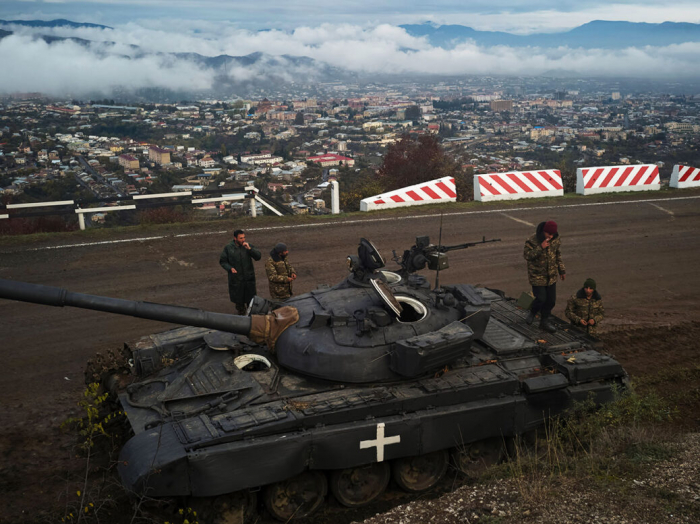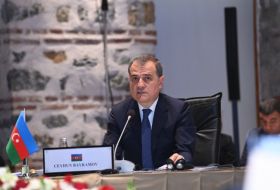In a recent interview, Armenian defense official Armen Khachatryan disclosed the existence of "major" arms deals with countries beyond known partners India and France. He alluded to these countries as "frontrunners in military technology," without providing specifics.
Khachatryan hinted at a significant expansion of Armenia's military reach, alluding to collaborations with "superpowers" in the defence industry. He refused to divulge specific names but emphasized, "Our defense partnerships are no longer confined to just two nations. We've been diligently building bridges, and the coming months will reveal the strength of our diversified alliances."
"Armenia has secured significant agreements on military-technical cooperation and weapons acquisition, expanding beyond established partnerships with India and France. While details of these agreements with major players in the military-industrial complex remain confidential, it is clear that diversification efforts have been underway for the past two years, and the results will be evident in the near future."

Khachatryan also noted that Armenia has inked serious agreements on military-technical cooperation with Russia, which has fulfilled only part of its obligations to Yerevan.
Confirmation was made by the deputy regarding the acquisition of "highly sophisticated" weaponry, specifically defined as fourth and fifth-generation technology. Emphasis was placed on the deliberate choice of modern equipment, based on extensive analysis of contemporary warfare tactics. He elaborated on how the recent bitter experience of the 44-day war, provided valuable insights into specific needs, enabling the targeted selection of suppliers able to furnish such advanced armaments.
Building upon their existing defence partnership, India has agreed to provide Armenia with a range of weaponry, including self-propelled and towed artillery mounts, anti-tank missiles, counter-battery radars, anti-tank systems, multiple launch rocket systems, and anti-aircraft missile systems.
Pursuant to the aforementioned agreements, India has commenced substantial deliveries of weaponry to Armenia via Iran, including artillery systems and the inaugural shipment of Pinaka MLRS (Multi-Launch Rocket Systems).

India supplies weapons to Armenia. It's not a secret
In addition to confirmed agreements with India for artillery, anti-tank missiles, and rocket launchers, Armenia is reportedly engaged in negotiations for the acquisition of more advanced weaponry. These discussions reportedly include supersonic missiles from India, such as the BraMos with its 600-kilometer range, and Pralay cruise missiles.
France, another key partner in Armenia's military procurement efforts, has finalized contracts for the sale of air defense systems, radars, and light armored vehicles. Deliveries of 50 Bastion armored personnel carriers have already been completed through Georgia.
"Recent media coverage has shed light on potential negotiations between Armenia and France regarding the acquisition of additional weaponry, including the Caesar self-propelled artillery system."

And France supplies weapons to Armenia. And it's no secret
Following the conclusion of the 44-day Karabakh War in late 2020, Russia ceased arms exports to Armenia. Since 2021, Armenian officials have publicly asserted claims against Russia for unfulfilled arms deliveries valued at $400 million. Recent reports, however, indicate that Russia has undertaken "partial" fulfillment of these obligations. The specific nature of these deliveries remains unconfirmed, though sources suggest they potentially include missiles for the Smerch multiple launch rocket system.
The Russian Ambassador to Yerevan, Sergei Kopyrkin, has confirmed ongoing negotiations with Armenia regarding new military-technical cooperation agreements. This development suggests Russia's continued interest in maintaining its position as a major arms supplier to Armenia and preventing the entry of other exporters into the Armenian market.
Armenia has consistently emphasized its preference for acquiring modern and reliable military equipment, leading to a diversification of its arms suppliers beyond traditional partners.

And Russia began to repay its debts to Armenia. This is also no secret
Uncertainties surround the ability of the Russian military-industrial complex to meet Armenian demands, given its ongoing prioritization of supplying its own forces involved in the Ukrainian conflict.
Based on recent statements by both Deputy Chairman Armen Khachatryan and Defense Minister Suren Papikyan, it appears that Armenia has made significant progress in diversifying its arms procurement efforts. These statements, coupled with allusions to negotiations with a "superpower," have led some to speculate that the United States may be a potential partner in these new agreements.
Over the past few years, there has been a significant increase in military consultations between the United States and Armenia. This is evidenced by the frequent visits of high-ranking Pentagon officials to Yerevan and the reciprocal visits of Armenian envoys to the US Department of Defense.

What do the Americans supply to Armenia? This is the big secret!
Some analysts speculate that the nature of American military support to Armenia might have evolved beyond officially stated personnel training and exercises. This speculation stems from recent developments and Prime Minister Pashinyan's cryptic remarks in The Telegraph interview. While concrete details remain unconfirmed, the possibility of expanded cooperation, potentially involving the supply of modern weaponry, cannot be entirely ruled out.
"While Armenia values its existing security partnerships with various nations, including the United States, France, India, and the European Union, it is crucial to acknowledge that these relationships are not established with the intent of targeting any specific country," he remarked. "This diversification of partnerships stems solely from the need to address evolving security requirements that were not adequately met through past collaborations."
Haqqin.az
More about:













































